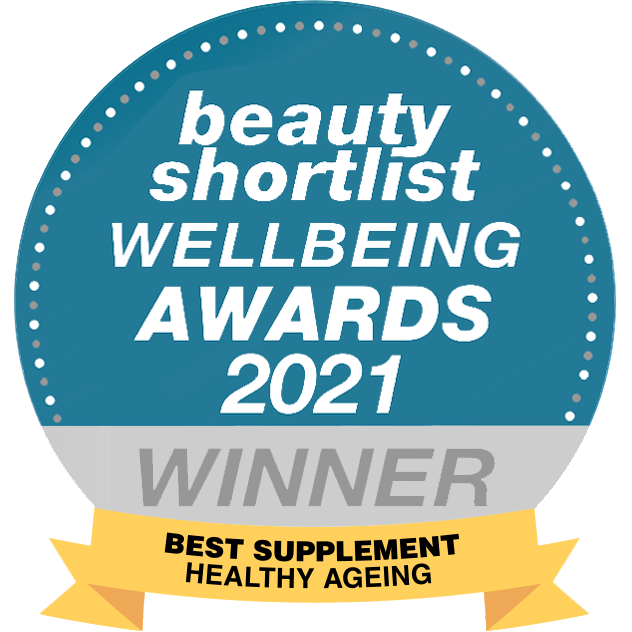Boost your omega-3 levels without any unpleasant side-effects or fishy aftertaste. Krill oil is high in anti-inflammatory fatty acids and antioxidants to help combat conditions that are usually associated with aging. Add krill oil to your daily healthcare routine and feel the difference.

Low levels of omega-3s in the blood have long been associated with many chronic diseases and the deterioration associated with unhealthy aging. As a result, much research has been done on the benefits of supplementing with omega-3s. The most popular supplement has been fish oil. However, most users of fish oil have encountered the unpleasant side effects that accompany it. Find out why Superba Krill oil is a better option to boost your omega-3 levels and why it’s anti-aging.
Krill oil vs fish - What’s the difference?
Superba krill oil comes from the oil extracted from a small shrimp-like crustacean (krill) known as Euphausia Superba that’s found in the Antarctic ocean. Although krill are present in most of our oceans, the krill in these waters are virtually free from environmental contaminants and toxins. Fish oil comes from fatty fish such as sardines, salmon, and tuna.
Although they have similar health benefits, they have a different structure. Fish oil is bound by triglycerides whereas krill oil consists of phospholipids.
Krill oil is a good source of health-promoting nutrients such as:
-
Omega-3 fatty acids (both EPA & DHA)- essential fatty acids that play an important role in health and longevity.
-
Phospholipids - special molecules that help omega-3’s cross the cell membrane leading to higher levels in the blood. This makes krill oil unique because the omega-3’s are more easily absorbed by the body.
-
Choline - a critical nutrient for many processes in our bodies.
-
Astaxanthin - an antioxidant that protects the krill oil from oxidation, so there’s no need for preservatives. It also gives krill oil a red color.
What are Omega-3 Fatty acids?
Omega-3 fatty acids are essential fats that are found naturally in marine animals, plants, and nut oils. However, they can also be obtained from various supplements. There are two types of omega-3 fatty acids, namely long and short-chain omega-3 fatty acids.
Long-chain omega-3 fatty acids - Docosahexaenoic Acid (DHA) and Eicosapentaenoic Acid (EPA) are found in marine sources.
Short-chain omega-3 fatty acids- Alpha-Linolenic Acid (ALA) is found in plant and nut oils such as flaxseed. Though very beneficial, ALA has far fewer health benefits than both EPA and DHA and has to be consumed in far larger quantities.

Numerous studies around the globe show that omega-3’s can help with a wide array of diseases and conditions. These essential fatty acids:
-
Fight inflammation and help ease the symptoms of inflammatory conditions like arthritis.
-
Potentially prevent cancer.
-
Reduce asthma.
-
Fight anxiety and depression, and benefit other mental health disorders.
-
Prevent cardiovascular disease and the risk of strokes.
-
Reduce fat around the liver and inflammation associated with non-alcoholic fatty liver disease.
-
Protect and repair the skin.
-
Boost bone health and improve joint health.
-
Fight age-related mental decline and conditions like Alzheimer’s Disease.
-
Improve eye health and prevent macular degeneration.
Despite the known health benefits of omega-3s, a study published in 2016, showed that 97% of the world’s population displayed low blood levels of these essential fatty acids. America, Europe, the Middle East, South East Asia, and Africa seemed to have the lowest levels. This was thought to be predominantly due to their westernized diets.
What are the benefits of krill oil?
Krill oil is fast becoming the popular alternative to fish oils. Like fish oil, it boasts high levels of docosahexaenoic acid (DHA) and eicosapentaenoic acid (EPA), omega-3 fatty acids only found in marine sources. However, krill oil’s omega-3’s are primarily bound to phospholipids, and research suggests these have higher levels ofbioavailability than regular omega-3’s found in fish oils.
The phospholipids are also the reason why krill oil has no fishy aftertaste or unpleasant digestion issues. Watch the video below from Akerbiomarine to see the difference between fish oil and krill oil and how the phospholipids help with digestion.
Apart from no unpleasant aftertaste for most, krill oil also boasts the following health benefits:
A good source of EPA and DHA
Both krill oil and fish oil contain EPA and DHA. However,evidence suggests that because molecules in krill oil are phospholipids they may be easier absorbed into the bloodstream. A second study has shown krill oil to be more effective than fish oil in raising omega-3 levels and this may be directly related to their different forms of omega-3 fats.
A good source of the essential nutrient choline
In addition to its uniquely bound phospholipid omega-3’s, krill oil also has the advantage of choline and astaxanthin. Choline is a fairly new nutrient in terms of discovery and was only acknowledged as an essential nutrient in 1998 by the Institute of Medicine. Although small amounts are made within our livers, the majority of our choline must be obtained through our diets, much like omega-3’s, and therefore supplementing with a good source, like krill oil, is very beneficial.
Often grouped with Vitamin B complex due to its similarities, it’s vital to our health:
-
It supports our cells -Choline is needed for the development of fats that support cell membranes.
-
It improves cell signaling - Choline produces compounds that act as messengers within our cells.
-
Choline boosts metabolism and helps with fat transport- Choline deficiency's in the liver may result in fat and cholesterol build-up.
-
Helps DNA synthesis - Alongside other vitamins such as B12 and Folate, choline helps with a process needed for DNA synthesis.
-
Maintains a healthy nervous system - The body uses choline to produce acetylcholine — a neurotransmitter used in muscle movement, memory, regulating heartbeat, and other basic functions.
Fights inflammation
Omega-3 fatty acids have long shown to have anti-inflammatory properties within our bodies. However, krill oil may have even better anti-inflammatory action, as it appears to be easier for our bodies to use than regular fish oils.
Furthermore, krill contains astaxanthin a pink-orange pigment with both anti-inflammatory and antioxidant properties.A small study went on to show that taking 1000mg off krill oil daily improved inflammation more effectively than 2000mg daily of purified omega-3. An additional study onchronic inflammation showed that 300mg of krill oil daily reduced inflammation by up to 30% after just one month of use.
May reduce joint pain and stiffness in those with arthritis
A study has shown that krill oil significantly lowered joint pain and stiffness in both rheumatoid and osteoarthritis patients, whilst improving functional impairment. In a second small study on patients suffering from mild knee pain, results showed taking krill oil for 30 days significantly reduced pain and improved range of motion. In additional research on mice with arthritis, krill oil has shown to improve arthritis scores and lower the swelling and inflammation of joints.
May lower triglycerides and improve cardiovascular health
Research has shown krill oil to improve blood lipid levels, whilst also effectively reducing levels of triglycerides and other blood fats. In a study against purified omega-3, only krill oil was shown to raise levels of the high-density lipoprotein (HDL) cholesterol (the beneficial cholesterol). Furthermore, it was shown more effecting at lowering inflammation even at far lower doses.
Upon review of seven studies, results showed that krill oil was not only good at lowering low-density lipoprotein (LDL) cholesterol and triglycerides but may also increase HDL cholesterol levels. A controlled trial has also found that krill oil significantly improves insulin resistance scores and the function of the lining of blood vessels. Furthermore, it has also been found that omega-3’s may be more effective at treating patients with chronic heart failure than statins.
May decrease the symptoms of PMS and period pain
Omega-3 has been known to help decrease pain and inflammation. However, a study was done to compare the effects of krill oil vs fish oil in women suffering from premenstrual syndrome (PMS). The study showed that both supplements significantly improved the symptoms of the women, but those taking krill oil used significantly fewer pain meds than those taking fish oil. These results suggest that krill oil may be more effective than other sources of omega-3 when it comes to reducing the symptoms of PMS.
Easy to swallow without unpleasant digestive issues
Phospholipids make krill oil more bio-efficient allowing for smaller capsules than regular omega-3 supplements. As demonstrated in the video above, due to its phospholipid structure krill oil’s omega-3’s mix well with stomach contents preventing the fishy aftertaste, belching, and other unpleasant digestive issues so that you can get on with life and enjoy the far-reaching health benefits of regular omega-3 supplementation.

Is krill oil anti-aging?
Yes, adding krill oil into your diet is a great option to optimize your health and to potentially slow down aging and the associated deterioration.
As mentioned, krill oil has been shown to be rich in omega-3 fatty acids, choline, and astaxanthin—these all have anti-inflammatory properties. Chronic inflammation has been linked to many diseases and conditions associated with aging and is regulated by the longevity pathway NF-kB (Nuclear Factor-kappa B). Overexpression of the NF-kB pathway can lead to cell deterioration and damage caused by ongoing inflammation. Therefore krill oil is one of the ways that you can inhibit this pathway.
With regular use, krill oil will also signal the mTOR longevity gene that will bring additional health benefits to your brain, heart, eyes, and liver.
To find out more about the longevity pathways and how you can use them to slow aging and feel youthful again, read: The Longevity Pathways - How to Live a Happy, Healthy and Long Life.
Apart from reducing inflammation, krill oil has been shown to help with other issues associated with aging such as cardiovascular disease, arthritis, and cholesterol problems. It’s also known to combat oxidative stress, support the immune system, reduce water loss in the skin, and keep the body youthful and healthy. All-in-all, krill oil is anti-aging in every sense.
How much krill oil should I take?
Our Superba Krill Oil consists of 100% pure krill oil. Each capsule is 1000mg and we recommend that you take 1-2 capsules a day with water. Do not exceed the recommended amount unless directed by your healthcare practitioner.
What are the side effects of krill oil?
Krill oil appears to be safe for most adults and does not carry any significant side effects. However, as with all health products, there are always the few who find themselves sensitive to a particular supplement. If you have reacted to a previous krill oil product, it’s best to consult your healthcare practitioner before trying a new product.
Also, if you are allergic to fish or shellfish, it’s best to avoid taking krill oil.
Here are a few side effects that sensitive individuals might experience:
-
Bad breath
-
Diarrhea
-
Heartburn
-
Decreased appetite
-
Change in taste
-
Potentially increased facial oil or breakouts
Safety during pregnancy and breast-feeding has not yet been established and should also be avoided or used with caution. We recommend that you consult your healthcare practitioner before trying any new supplement when pregnant or breast-feeding.
Due to its mild blood-thinning effects, krill oil should be used with caution in those with bleeding disorders or on blood-thinning medication such as warfarin (Coumadin). However, it should be mentioned that most research indicates that dosages of 3 to 6g daily do not significantly affect the anticoagulant status of warfarin patients. But, it’s best to consult your healthcare practitioner before supplementing.
How long does it take for krill oil to work?
The rate at which you will notice a significant change from krill oil largely relates to what purpose you are using it for. Daily supplementation of krill oil reduced chronic inflammation and arthritic pain after just one month of use. However, a decrease in the symptoms of PMS was seen after 90 days.
Conclusion
As you can see, there are many benefits to adding krill oil to your daily healthcare routine. Packed with omega-3’s plus anti-inflammatory and antioxidant properties, it boasts a smaller dosage requirement than that of traditional fish oil plus it comes with fewer side effects such as a fishy aftertaste and digestive upset.
Our Superba Krill Oil from Aker Biomarine is pure, traceable, sustainable, and backed by science — all qualities that we value at Youth & Earth. Try our Superba Krill Oiltoday and start regaining vitality and sustaining a great quality of life into the golden years.
The content of this article is for informational purposes only. It’s not intended to be a substitute for professional medical advice, diagnosis, or treatment. Always seek the advice of your physician or health provider before starting a new health regime or program. Do not ignore medical advice or delay seeking it because of something you’ve read on this site or any Youth & Earth product.




























